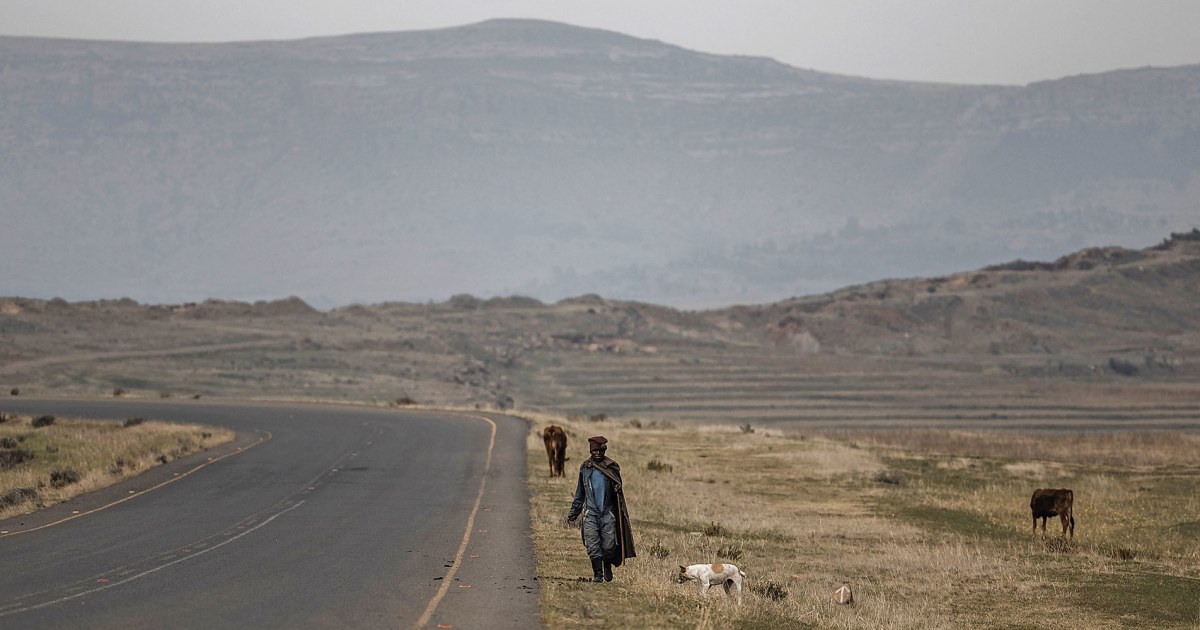US Tariffs Devastate Lesotho's Economy: A Developing Nation's Struggle
The imposition of US tariffs has dealt a significant blow to Lesotho's economy, highlighting the vulnerability of developing nations in the face of global trade policies. This small, landlocked country in southern Africa, heavily reliant on textile exports to the US, is grappling with the devastating consequences of these trade barriers. The impact extends far beyond simple economic figures, affecting livelihoods, social stability, and the nation's overall development trajectory.
The Crushing Weight of Tariffs
Lesotho's economy is intricately woven into the global textile industry, with the African Growth and Opportunity Act (AGOA) providing preferential access to the US market. However, the recent imposition of tariffs has severely hampered this crucial trade relationship.
- Reduced Exports: Lesotho's textile factories, many operating within the African Growth and Opportunity Act (AGOA) framework, have experienced a dramatic drop in exports to the US. This has led to significant production cuts and widespread job losses.
- Factory Closures: Several factories have already been forced to close their doors, leaving thousands of workers unemployed and exacerbating existing social and economic inequalities.
- Ripple Effect on Related Industries: The textile industry's downturn has a ripple effect, impacting related sectors like transportation, agriculture (supplying raw materials), and retail.
Beyond the Numbers: Human Cost of Tariffs
The economic impact translates directly into human suffering. The loss of jobs translates to families struggling to afford basic necessities, increased poverty levels, and potential social unrest. The situation is particularly concerning given Lesotho's already fragile economic landscape and high unemployment rates.
Government Response and International Aid
The Lesotho government has responded by attempting to diversify its economy and explore new export markets. However, this is a long-term process, requiring substantial investment and international support. International organizations and aid agencies are increasingly recognizing the gravity of the situation and providing assistance, but the scale of the challenge remains immense.
Seeking Diversification and New Trade Partners
Lesotho's government is actively pursuing strategies to reduce its reliance on the US market, including:
- Investing in other industries: Exploring opportunities in areas like tourism, agriculture, and renewable energy to create alternative sources of income and employment.
- Strengthening regional trade: Seeking to increase trade with neighboring countries within the Southern African Development Community (SADC).
- Negotiating new trade agreements: Actively engaging in international trade negotiations to secure preferential access to other markets.
The Future of Lesotho's Economy
The long-term outlook for Lesotho's economy remains uncertain. The impact of the US tariffs serves as a stark reminder of the vulnerabilities inherent in relying heavily on a single export market and a single trading partner. Sustainable economic development requires diversification, investment in human capital, and robust trade policies that protect against external shocks. International cooperation and support are crucial in helping Lesotho navigate these challenging times and build a more resilient and prosperous future.
Keywords: Lesotho, US Tariffs, AGOA, Textile Industry, African Growth and Opportunity Act, Developing Economy, Trade Barriers, Economic Impact, Poverty, Unemployment, International Aid, Southern Africa, SADC, Global Trade, Economic Diversification.
Call to Action: Learn more about the impact of trade policies on developing nations and how you can support initiatives promoting fair trade and sustainable economic development. [Link to relevant organization/article]
